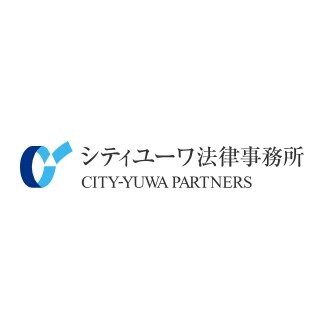Best Natural Resources Lawyers in Chiyoda-ku
Share your needs with us, get contacted by law firms.
Free. Takes 2 min.
List of the best lawyers in Chiyoda-ku, Japan
About Natural Resources Law in Chiyoda-ku, Japan
Chiyoda-ku, located in the heart of Tokyo, is an area characterized by its dense commercial and residential districts, as well as an array of significant cultural and historical sites. While it is not typically recognized for abundant natural resources like rural areas, Chiyoda-ku encompasses crucial elements such as urban green spaces and water management systems, contributing to its ecological footprint. Natural resources law in Chiyoda-ku involves regulations surrounding the management, preservation, and sustainable use of these resources, ensuring they meet environmental standards and coexist effectively with urban development. Legal issues in this field often intersect with real estate, environmental protection, and municipal regulations.
Why You May Need a Lawyer
Navigating natural resources law in Chiyoda-ku can be complex, often requiring guidance from experienced legal professionals. Here are common situations where legal assistance might be necessary:
- **Urban Development Projects:** Developers may need legal advice to ensure compliance with environmental regulations and obtain necessary permits.
- **Property Use Disputes:** Legal assistance can be crucial for resolving conflicts related to the use of natural resources or adherence to zoning laws.
- **Conservation Efforts:** Organizations focused on environmental conservation might require legal representation to negotiate land uses and enforce regulatory protections.
- **Water Rights Issues:** Businesses or individuals dealing with water management regulations may need legal guidance to ensure compliance with local policies.
Local Laws Overview
To understand natural resources law in Chiyoda-ku, one must consider several key legal frameworks:
- **Tokyo Metropolitan Environmental Ordinance:** This ordinance includes regulations on pollution control, waste management, and conservation efforts, applicable across Tokyo, including Chiyoda-ku.
- **City Planning Act:** This national legislation guides urban development and zoning, affecting how natural resources can be utilized and managed in densely populated areas like Chiyoda-ku.
- **Water Supply and Sewerage Service Laws:** These govern the management of water resources, ensuring safe and sustainable water usage in residential and commercial settings.
Frequently Asked Questions
What are natural resources laws in Chiyoda-ku mainly concerned with?
They focus on environmental protection, urban planning, and the sustainable use of limited resources such as green spaces and water.
Do I need a permit to use public land in Chiyoda-ku?
Yes, using public land for any development or event generally requires permits from local authorities, aligned with municipal and environmental regulations.
How can I resolve a dispute regarding water usage on my property?
Consulting a lawyer specializing in natural resources law is recommended to mediate negotiations and ensure compliance with water management laws.
What is the role of local government in natural resources management?
The local government enforces ordinances and zoning laws, monitors environmental impacts, and supports sustainable resource management initiatives.
Is there legal support for preserving historical landmarks in Chiyoda-ku?
Yes, historic preservation laws intersect with natural resources law to protect cultural sites that also serve as green spaces or house natural features.
How do environmental laws affect businesses in Chiyoda-ku?
Businesses must comply with environmental regulations that limit pollution and mandate sustainable resource use, affecting operations and planning.
Are there incentives for green buildings and sustainable practices?
Incentives may include tax benefits or grants, particularly if projects align with Tokyo’s sustainability goals or use cutting-edge environmental technology.
Can foreigners own natural resource rights in Chiyoda-ku?
Foreigners can own property in Japan, but specific resource rights may be subject to additional scrutiny and restrictions, requiring legal guidance.
What measures are in place to tackle pollution in Chiyoda-ku?
The Tokyo government implements stringent regulations on emissions, waste disposal, and encourages practices to reduce the environmental footprint.
Where can I report environmental violations in Chiyoda-ku?
Such violations can be reported to local environmental enforcement agencies or city authorities, often through designated hotlines or online portals.
Additional Resources
For those seeking more information or assistance with legal issues relating to natural resources in Chiyoda-ku, the following resources may be helpful:
- **Tokyo Metropolitan Government Bureau of Environment:** Provides information about regional environmental policies and guidelines.
- **Japan Environmental Lawyers Federation:** Offers support and information on legal frameworks regarding environmental and natural resources law.
- **Chiyoda-ku Ward Office:** Can offer guidance on local regulations and permit applications for projects involving natural resources.
Next Steps
If you require legal assistance concerning natural resources in Chiyoda-ku, consider taking the following steps:
- **Identify Your Needs:** Determine the specific nature of your legal concern, whether it is related to development, disputes, or compliance with regulations.
- **Consult with Experts:** Reach out to legal professionals or law firms specializing in natural resources or environmental law in Tokyo.
- **Engage with Local Authorities:** If applicable, contact local government offices for guidance on permits or to clarify zoning and resource management laws.
- **Plan and Act:** Based on legal advice, proceed with necessary actions to comply with laws, resolve disputes, or advance your project goals effectively.
Lawzana helps you find the best lawyers and law firms in Chiyoda-ku through a curated and pre-screened list of qualified legal professionals. Our platform offers rankings and detailed profiles of attorneys and law firms, allowing you to compare based on practice areas, including Natural Resources, experience, and client feedback.
Each profile includes a description of the firm's areas of practice, client reviews, team members and partners, year of establishment, spoken languages, office locations, contact information, social media presence, and any published articles or resources. Most firms on our platform speak English and are experienced in both local and international legal matters.
Get a quote from top-rated law firms in Chiyoda-ku, Japan — quickly, securely, and without unnecessary hassle.
Disclaimer:
The information provided on this page is for general informational purposes only and does not constitute legal advice. While we strive to ensure the accuracy and relevance of the content, legal information may change over time, and interpretations of the law can vary. You should always consult with a qualified legal professional for advice specific to your situation.
We disclaim all liability for actions taken or not taken based on the content of this page. If you believe any information is incorrect or outdated, please contact us, and we will review and update it where appropriate.












